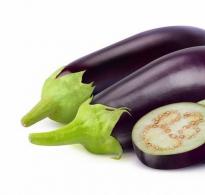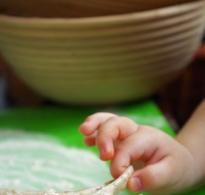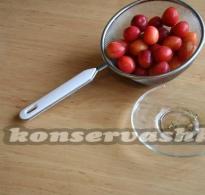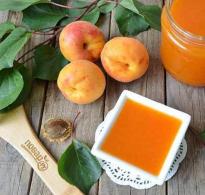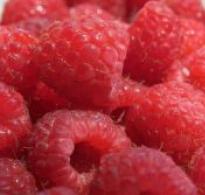Dangerous mixture: what medicines should not be taken with tea, coffee and juices. Is it possible to take pills with tea, the rules for taking medications
The main reason why doctors categorically do not recommend combining pills with any drinks is that teas, fruit drinks and other drinking options can adversely affect the effect of the drug. Some types of drinks enhance the activity of drugs, others depress, remove the drug from the human body before it begins to act. In addition, if the tablets are not taken with plain water, you may encounter drug poisoning.
List of drinks that should not be taken with medication
Various teas. The composition of tea drinks contains a lot of such a substance as tannin. It is it that negatively affects the process of assimilation of the drug. Teas can either enhance the effects of medicines, lead to an overdose, or completely deprive them of the necessary properties. So, for example, you should not drink tea with hormonal drugs, because they will not be of any use. If you take antibiotics or heart remedies along with a tea drink, you may experience overdose symptoms.
Coffee of any kind. This drink - soluble or custard - is an extremely diuretic, in addition, it stimulates the intestines. All this can turn into a situation when the medicine taken simply does not have time to act in any way, being excreted from the body very quickly. Do not drink coffee products that contain caffeine, codeine, papaverine. Such components are completely incompatible with coffee drinks.
Juices and compotes. Fresh or packaged juices adversely affect performance medications. It is especially dangerous to drink tablets with citrus juices, cranberry or lingonberry fruit drinks, pomegranate juice. Such drinking enhances the effect of drugs and can cause severe side effects. This is especially true of antihistamines, antidepressants, antibiotics, painkillers. In compotes - purchased or homemade - there is a lot of fruit acid. Because of this feature, drugs in the body may simply not be absorbed, or they may begin to act in a completely different way than one would expect from them. It is dangerous to drink preparations for the stomach with compotes, for example, for heartburn, and means for normalizing pressure.
Lemonade and other carbonated drinks. Sweet carbonated drink in itself can negatively affect the gastrointestinal tract and auxiliary organs, cause pain, flatulence. In combination with drugs, you can get an unexpected and literally explosive effect. In addition, with this combination, the risk of trauma to the mucous membranes increases. internal organs. If you take medication mineral water without additives, then such a drink can quickly dissolve the tablet and deprive it of medicinal properties. As a result, taking the drug will simply be pointless.
Drinks for athletes. This kind of drink contains a considerable dose of potassium. This trace element interferes with normal absorption medicines. It is forbidden to drink such drinks with means to improve the functioning of the heart, tablets for hypertension.
Alcoholic drinks. Combining drugs and alcohol is a very risky and in many ways stupid decision. Such a combination can very easily cause poisoning of the body. Alcoholic drinks and medicines cause a strong blow to the liver, stomach, kidneys, which can lead to the development of an acute and severe painful condition. The most dangerous combination of alcohol-containing drinks and antibiotics, antidepressants, analgesics, means to reduce body temperature.
Milk. Among the medications, there are those that are acceptable to drink with milk, but most drugs will respond very poorly to such drinking. For example, many antibiotics simply lose their medicinal properties under the influence of milk. Such a drink does not allow a number of drugs to be normally absorbed and can even cause vomiting after taking the medication.
"Wrong" fluids can weaken or enhance the effect of tablets up to an overdose. Among them:
Grapefruit juice
Canadian researchers from the Lawson Health Institute found that citrus fruits in general and grapefruit in particular contain furanocoumarins, substances that multiply the effect of the drug. Grapefruit is especially dangerous in combination with cardiac, antiallergic, antiviral agents, drugs for hypertension, antidepressants and antibiotics - severe complications are possible.
The most correct "drink" is ordinary water room temperature, boiled or bottled, without gas. Moreover, it is better not to save water: for one tablet - at least half a glass of water (and not one or two sips, as most do).Tea
Tea contains tannin - an active substance that affects the rate of drug absorption. In some cases, this leads to overexcitation, for example, during treatment with antidepressants, in some cases, to a weakening of the effect of the drug (when taking oral contraceptives). It is not recommended to drink tea pills "from the heart" and "from the stomach", antibiotics.
Coffee
It tones and has a strong diuretic effect. If you drink medicine with them, then you can remove the drug from the body too quickly or increase its effect (this is possible, for example, with painkillers).
Milk
Alcohol
To see the absorption rate of drugs against the background of alcohol, scientists created an artificial environment that mimics the small intestine. Experiments have shown that almost 60% of the tested drugs dissolve much faster in the company of alcohol. You need to be especially strict with this matter when taking antidepressants, antibiotics, analgesics and antipyretics.
Even harmless paracetamol flavored with alcohol is toxic to the liver.soda
Not only is a sweet pop in itself not useful - it irritates the gastric mucosa, causing nausea, bloating, flatulence, but in combination with a medicine, it will generally become a “bomb” for gastrointestinal tract. This is especially true of means to improve digestion, diuretics, antibiotics.
Compotes and kissels
Doctors may recommend the latter option to patients with gastritis and ulcers: kissel envelops the walls of the stomach, thereby reducing the irritating effect of the drug. However, the therapeutic effect of the drug is also reduced, and this must be taken into account. It is undesirable to drink a pill with compote - fruit acids can change the pharmacological effect of drugs, including drugs for heartburn and hypertension.
By the way
Food can also reduce the effectiveness of medications. Doctors do not recommend using:
- preparations of the tetracycline group with cottage cheese, legumes and cheese;
- iron-containing products with nuts;
- antithrombotic agents with spinach and cabbage;
- antibiotics - with sour fruits and food seasoned with vinegar;
- acetylsalicylic acid with citrus fruits.
The effectiveness of treatment largely depends on the correctness of the reception. medicines. Many people take the rules rather nonchalantly, drinking pills with whatever they have to, as long as there is liquid to swallow them. This happens especially often if you take the pills in the morning (and drink your favorite morning drink - coffee). What happens to the body if you drink coffee tablets?
Should I drink coffee tablets or not?
In general, doctors do not recommend doing this. The best remedy for washing down any medicines, - pure still water. Some instructions state that best effect milk or alkaline water can be used, so read the instructions carefully.
The mechanism of combining coffee with drugs is not fully understood, serious studies have not been conducted. And few people find themselves in a situation where there are no more drinks besides coffee, so it’s better to opt for water and drink coffee after a while, if without it you can’t start the working day and gather your strength.
Why can't you take coffee tablets?
Let's take a look at how caffeine affects the body when combined with different drug groups and types.
Remember that coffee is a diuretic to some extent, and can quickly remove the drug from the body before it has had time to fully work. In addition, the stimulant effect of caffeine enhances the effect of certain drugs, resulting in an overdose.
- sedatives. The thought seems absurd, but some still come to mind: a pill + coffee to calm down and relax. Caffeine tones up, activates all body systems, accelerates the blood, and taking it along with sedatives means nullifying all effects.
- cardiac. Coffee raises blood pressure and speeds up the heart rate. Instead of a pill reduced pressure you can just drink a cup of coffee, but you should not combine them - you will get too much dose, and it may become bad. At high blood pressure coffee in general should be excluded, and definitely not to drink pills with it.
- Aspirin and Citramon. The simplest painkillers that almost everyone has, and no one reads the instructions from them, and coffee is often washed down with a pill (in a cafe, at a party, at work). Meanwhile, the compounds of caffeine and medicinal substances in these tablets have a rather serious effect on the liver, and coffee also greatly enhances the effect of these drugs.
- Antibiotics. Coffee removes them from the body very quickly, they do not have time to act correctly, and at the same time, the resistance of bacteria to the drug increases from a weak dose. This is especially important if you are taking penicillin antibiotics or erythromycin.
When can I take coffee tablets?
The only option when you can drink a pill with a cup of black natural coffee- if you need to prolong the effect of painkillers as much as possible. Paracetamol and aspirin in this case are absorbed faster and last longer, but be aware of the increased load on the liver, and the inevitable rise in pressure. Choose the lesser evil and be guided by the situation.
Conclusion:
- It is recommended to drink the tablets exclusively with pure non-carbonated water.
- You can drink coffee tablets only when you need to maximize the effect of painkillers.
- It makes no sense to drink antibiotics, sedatives, heart drugs, as well as vitamins and homeopathy with coffee. Dangerous - all drugs are caffeinated and potent.
- If you washed down the pills with water, you should drink coffee at least an hour later, and it is better to refrain from it during the treatment period.
According to doctors and pharmacists, no more than 20% of all patients strictly follow the doctor's prescriptions for taking medications. Most of those who are treated with various pills or potions, drops and syrups do not think at all about what they need to drink. In the course are cafes and tea, soda, mineral water with gas and even alcohol. As a result, some patients end up in the hospital with drug-induced alcohol poisoning, or suffer from their sores for years, because the wrong pills simply do not work. At the same time, they all stubbornly scold doctors!
Features of taking medications
Those chemical compounds that are the basis of the drug, when taking the drug, may react with the components of food or drink. This can not only reduce their effectiveness, but also lead to the formation of some toxic compounds. Toxins can harm the health of a patient who takes pills in the hope of healing. There may be such negative reactions as a decrease in the effectiveness of the drug, allergic reactions and digestive disorders, as well as poisoning. Therefore, before taking medicines, you need to think about how and with what they need to be washed down. Sweet soda, mineral carbonated water, coffee or tea, milk drinks for these cases, for the most part, are not suitable.
Co-administration of tablets with tea, even herbal tea, often leads to a change chemical properties medicines. The active substances contained in the composition of tea are to blame for this - tannin, caffeine and some other components. Thus, a combination with tannin can give, when used together with drugs, insoluble or toxic substances, which negatively affects the healing process. In addition, if you drink tea with medicines, they noticeably change the rate of absorption and assimilation. Such combinations are especially dangerous when using iron preparations, which give the precipitation of its toxic salts in the intestine.
Oral contraceptives can be considered typical examples of unsuccessful combinations of tea with pills, the effectiveness of which is significantly reduced. Antidepressants taken with tea are no less dangerous - their combined action gives overexcitation and insomnia, increased nervous tension.
Tea is not combined with antibiotics, neurological drugs, enzymes, nitrogenous substances, cardiovascular and many other drugs.
Coffee and antibiotics, and other unfortunate combinations…
It is highly recommended not to take any medicines with coffee drinks. The content of caffeine and many other active substances in them leads to a violation of the absorption and activity of antibiotics, anti-inflammatory drugs and sedatives. Often, antibiotics that were washed down with coffee lose their activity completely or, instead of positive impact, have a toxic, negative effect, provoke allergies. Caffeine almost completely neutralizes the effect of sedatives and sedative pills, and also significantly reduces the analgesic effect of paracetamol, nurofen, enhances the irritating effect of aspirin on the stomach.
Ethyl alcohol in combination with drugs increases their toxic effect on the liver, and many drugs provoke alcohol poisoning with severe symptoms, both during libations and in the morning. Some drugs give such a pronounced alcohol poisoning, even with a small intake of alcohol, that patients end up in a hospital. At the same time, it practically does not depend on the strength and type of drink, whether it be beer or wine, strong alcohol or cocktails. To avoid long alcohol poisoning, avoid drinking alcohol during treatment, and if you have a hangover, stop using dangerous medications (aspirin, antihistamines and antibiotics).
Why you can’t take medicine with dairy products: enzyme problems
Antibiotics, especially those of the tetracycline group, as well as enzymes taken to improve digestion, are not combined with milk. In addition, milk drinks slow absorption and inhibit the activity of many other drugs. Not just because milk is recommended folk medicine in case of poisoning: its components are capable of binding many chemical substances, including drugs. In addition to lowering the activity of enzymes, milk also interferes with the action of antacids (binding acid in the stomach), potassium and iron preparations.
It is forbidden to drink milk drinks with tablets and enzymes that have acid-resistant capsules, milk is capable of dissolving these shells, which prevents the drug from reaching the intestines.
Do not drink medicines with compotes, fruit drinks and juices. These drinks contain a lot of active fruit acids and biologically active components, which lead to the active destruction of chemical compounds in the basis of the drug or changes in their pharmacological properties. IN best case, the tablets will lose their activity, at worst, they will acquire allergenic or toxic properties. Antacids, sulfa compounds, and cardiac glycosides are at the highest risk of adverse effects when combined with these drinks. Juices can influence the composition of drugs for treatment of cardio-vascular system and those that regulate blood cholesterol levels. Also, they disrupt the absorption of antibiotics and non-steroidal anti-inflammatory drugs. But they increase the effect of aspirin on the walls of the digestive tract to toxic effects.
Combinations of juices and compotes with drugs that affect the rheological properties of blood will also be difficult. So, taking cranberry fruit drinks and juices with avocados affects the absorption of warfarin, a drug used in the treatment of thrombosis.
We categorically do not combine grapefruit juice with any medicines, it contains many active substances that disrupt the absorption of drugs from the intestines and increase their toxic effects on the body.
Chemical interaction can both neutralize the effect of a particular drug, and lead to undesirable health consequences.
Milk
Milk reduces the effectiveness of some drugs. This healthy drink absolutely not compatible, which are made on the basis of tetracycline ("Tetracycline", "Oletetrin", etc.). With the intake of milk, these drugs form strong chemical compounds that do not have healing effect and pass through the digestive tract without being absorbed. Thus, up to 80% of the drug can simply leave the body without any effect on the human condition.
Milk neutralizes potassium and antacids - drugs that are used to improve performance digestive system. With milk, it is difficult to absorb "Lincomycin", "Pancreatin" and "Bisacodyl" - drugs that have an acid-resistant shell for absorption in the digestive tract.
It is worth noting that despite the inadmissibility of the simultaneous intake of these drugs with milk, the patient's diet should always contain dairy products (for example, kefir), which positively affect the activity of the digestive system and can save the intestines from damage caused by taking certain drugs (for example,) .
Alcoholic drinks
Medications are completely incompatible with alcoholic drinks. Alcohol-containing substances can enhance the effect of drugs, which can cause serious and even lead to complications. The joint use of alcohol with causes stomach ulcers. If you take alcohol with drugs that lower blood sugar, you will not only increase the effect of this drug - the simultaneous use can cause a sharp increase.
It is worth noting that headache can occur even after taking vasoconstrictor nasal drops and a small portion of alcohol.
Alcohol increases the effect of psychotropic drugs. Also, alcohol reduces the effectiveness of antibiotics and increases the load on the liver, which is already elevated, and therefore you should stop drinking such drinks for the duration of treatment.
Other drinks
Alkaline environment mineral water positively affects the effectiveness of antibiotics, prolonging their action and facilitating their subsequent removal from the body. However, carbonated sugary drinks should not be taken as they irritate the stomach and contain calcium and iron, which reduce the effectiveness of the drugs.
Also, grapefruit and orange juice, which enhance the effect of drugs and possible side effects.
You should also refrain from taking oral contraceptives with tea or coffee - these drinks significantly reduce the effectiveness of these drugs. Also, you should not drink tea with drugs whose action is based on codeine or aminophylline.

